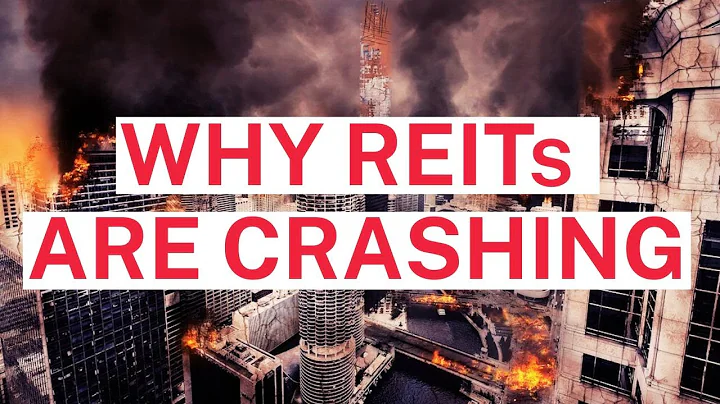Why do REITs take on debt?
REITS must take on debt for a very simple reason. If they don't, they won't have any funds to grow the business. If you started a private business, you could take the profits and reinvest them back into the business.
Commercial real estate (CRE) debt investing is an option that can help provide investors predictable cash flow, relatively short target duration, downside protection, and a higher target return than many fixed-income alternatives in the public market.
Depreciation typically covers the equity payment portion of the note or close to it. So a REIT can basically cycle it's equity from paying down debt into buying more properties and keeping it's percentage of leverage the same.
For real estate investment companies, including real estate investment trusts (REITs), the average debt-to-equity ratio tends to be around 3.5:1.
Debt or Mortgage REITs and how they work
While equity REITs typically generate their potential income from rents, debt REITs generate their revenues from the interest earned on the debt instruments. Like equity REITs, mortgage REITs are required to distribute at least 90% of their annual taxable income to shareholders.
REITs have low exposure to floating rate debt, with over 87% of the debt held by the industry at fixed rates. In contrast, as cited in the Wall Street Journal, the Mortgage Bankers Association reports that almost half of all commercial property debt is floating rate debt.
The potential for appreciation on a property is high, so this means that using debt to purchase an asset such as real estate can lead to higher returns, making it worthwhile.
Real estate debt is a debt instrument that the borrower is obliged to pay back with a predetermined set of payments. The debt instrument is secured by a specified real estate property as collateral. Real estate debt typically takes the form of a mortgage or deed of trust.
One way to do this involves using a lump sum – possibly received from a bonus or an inheritance – to pay off your inefficient debt. If you then borrow the same amount and invest it, you're essentially replacing the inefficient debt with a debt that is tax-deductable and could potentially generate wealth.
The FTSE Nareit All Equity index, consisting of REITs that exclude mortgages, generated a 15.9% annualized return during recessions and 22.7% in the year following the end of a downturn, according to the National Association of Real Estate Investment Trusts.
Is REIT debt or equity?
Most REITs are equity REITs, which own and manage income-producing real estate. Revenues are generated primarily through rents and not by reselling properties.
Can You Lose Money on a REIT? As with any investment, there is always a risk of loss. Publicly traded REITs have the particular risk of losing value as interest rates rise, which typically sends investment capital into bonds.

To qualify as a REIT, a company must have the bulk of its assets and income connected to real estate investment and must distribute at least 90 percent of its taxable income to shareholders annually in the form of dividends.
A REIT will be closely held if more than 50 percent of the value of its outstanding stock is owned directly or indirectly by or for five or fewer individuals at any point during the last half of the taxable year, (this is commonly referred to as the 5/50 test).
By law, a REIT must pay at least 90% of its income to its shareholders, providing investors with a passive income option that can be helpful during recessions. Typically, the upfront costs of investing in a REIT are low, while their risk-adjusted returns tend to be high.
Investing in REITs can add some diversification to your portfolio and give you access to passive income, liquidity and excellent long-term returns. However, taxes can be more expensive with REITs compared to other investment options, and there are still risks involved with the real estate market.
- Cap rates (Net operating income / property value)
- Equity value / FFO.
- Equity value / AFFO.
Some of the main risk factors associated with REITs include leverage risk, liquidity risk, and market risk.
Non-traded REITs have little liquidity, meaning it's difficult for investors to sell them. Publicly traded REITs have the risk of losing value as interest rates rise, which typically sends investment capital into bonds.
What is bad income for REITs?
For purposes of the REIT income tests, a non-qualified hedge will produce income that is included in the denominator, but not the numerator. This is generally referred to as “bad” REIT income because it reduces the fraction and makes it more difficult to meet the tests.
Generally speaking, a good debt-to-income ratio is anything less than or equal to 36%. Meanwhile, any ratio above 43% is considered too high. The biggest piece of your DTI ratio pie is bound to be your monthly mortgage payment.
Since Debt is almost always cheaper than Equity, Debt is almost always the answer. Debt is cheaper than Equity because interest paid on Debt is tax-deductible, and lenders' expected returns are lower than those of equity investors (shareholders). The risk and potential returns of Debt are both lower.
If the interest rate on your debt is 6% or greater, you should generally pay down debt before investing additional dollars toward retirement. This guideline assumes that you've already put away some emergency savings, you've fully captured any employer match, and you've paid off any credit card debt.
Mortgage debt
Your lender might agree to let you sell your house for less than what you owe and forgive the remaining balance. Another option is to ask for a mortgage modification to lower your monthly payment through a reduced interest rate or or a longer repayment term.